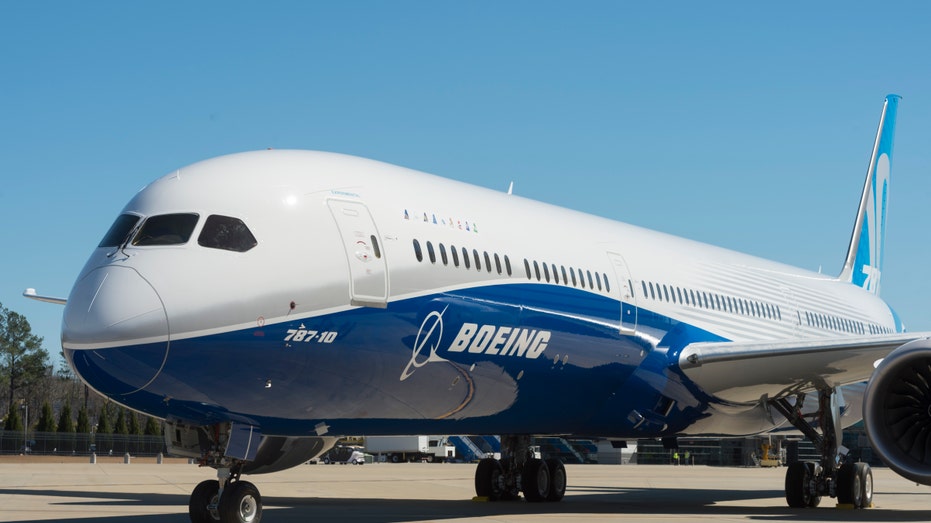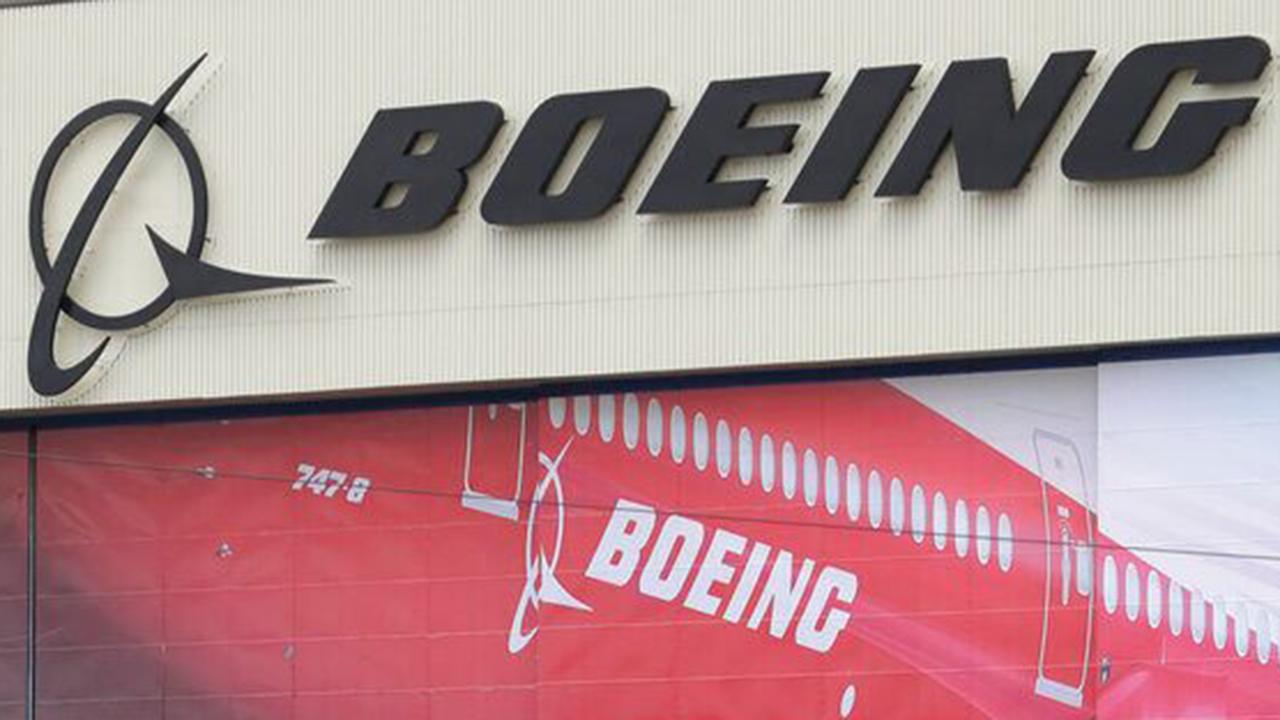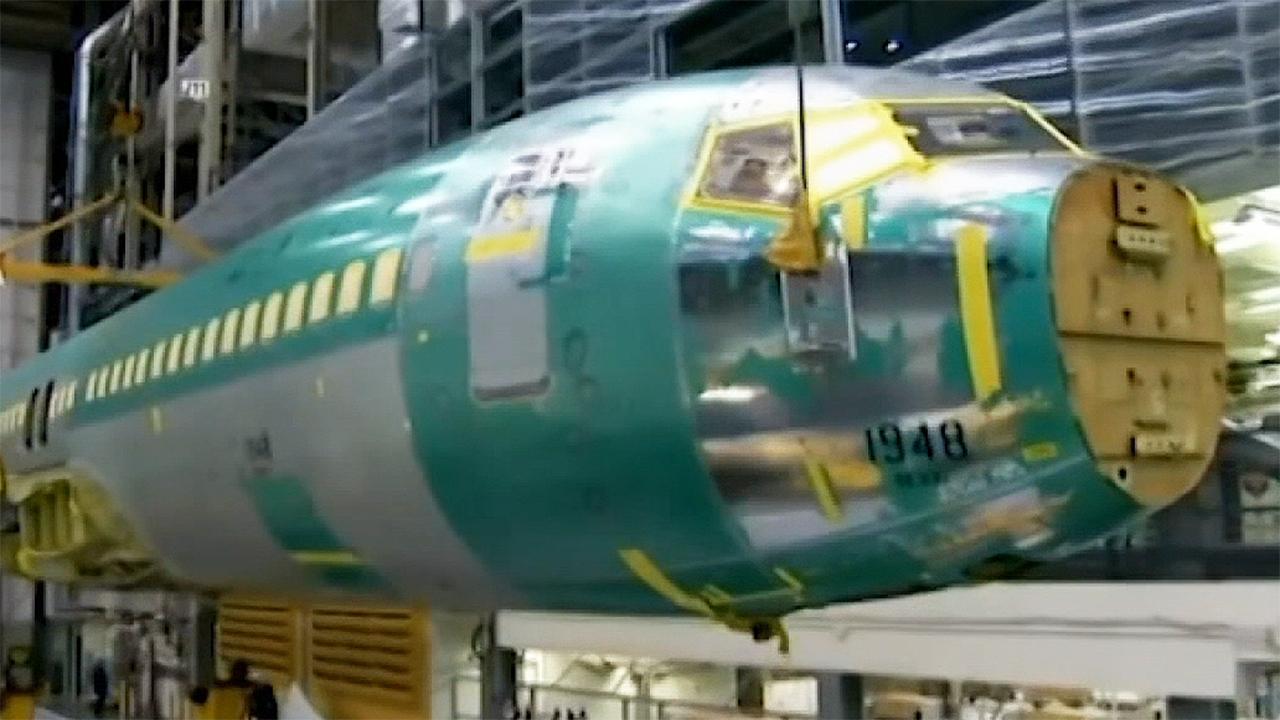FAA reviews Boeing quality control lapses at 787 Dreamliner plant
Certain parts at its South Carolina facilities failed to meet design standards
Production problems at a Boeing Co. 787 Dreamliner factory have prompted air-safety regulators to review quality-control lapses potentially stretching back almost a decade, according to an internal government memo and people familiar with the matter.
BOEING PLANS 787 DREAMLINER PRODUCTION CUT
The planemaker has told U.S. aviation regulators that it produced certain parts at its South Carolina facilities that failed to meet its own design and manufacturing standards, according to an Aug. 31 internal Federal Aviation Administration memo reviewed by The Wall Street Journal.
As a result of "nonconforming" sections of the rear fuselage, or body of the plane, that fell short of engineering standards, according to the memo and these people, a high-level FAA review is considering mandating enhanced or accelerated inspections that could cover hundreds of jets.
BOEING BOOKS 787 DREAMLINER ORDER FROM SECRET CUSTOMER
| Ticker | Security | Last | Change | Change % |
|---|---|---|---|---|
| BA | THE BOEING CO. | 242.97 | +6.05 | +2.55% |
The memo, a routine update or summary of safety issues pending in the FAA's Seattle office that oversees Boeing design and manufacturing issues, says such a safety directive could cover as many as about 900 of the roughly 1,000 Dreamliners delivered since 2011.
The final language depends on the outcome of ongoing reviews by Boeing and the agency, as well as decisions by more-senior FAA officials. The extent of the review reflects that the agency's concerns are significant.
Boeing has told regulators a defect resulting from the quality lapse doesn't pose an immediate safety threat to Boeing's flagship fleet of Dreamliners, people familiar with the matter said. The wide-body jets have an excellent safety record and are frequently used on international routes. Regulators aren't preparing immediate action and haven't publicly signaled what steps they might take.
LEAKED BOEING CODE POINTS TO POTENTIAL 787 DREAMLINER SECURITY RISKS: REPORT
But that slip-up combined with another recently discovered assembly-line defect prompted Boeing to take the unusual step in late August to voluntarily tell airlines to ground eight of their 787s for immediate repairs. Since then, Boeing has publicly confirmed the eight planes weren't safe to remain in service.
Both defects together led Boeing to determine the eight jets didn't meet structural-soundness "requirements for safe flight and landing," according to the FAA memo, which summarized the status of the agency's examination of the issue. Boeing also determined the second defect by itself doesn't pose an imminent safety hazard.
The extent of FAA scrutiny of Dreamliner production lapses and the period it covers haven't been reported before. The Air Current, a trade publication, earlier reported the factory lapses and August groundings of the eight planes, which are slated to end when Boeing-led teams complete fixes expected to take about two weeks.
A Boeing spokesman said the planemaker is conducting a thorough review to understand the root cause of the two defects and is inspecting newly produced airplanes before delivery. The company has fully briefed the FAA and is working closely with regulators, he added. "We are taking the appropriate steps to resolve these issues and prevent them from happening again," he said.
The FAA, in response to questions about the groundings and broader production review, has said it "is aware of the matter and continues to engage with Boeing." The agency's high-level review includes analyses of data and production parts.

NORTH CHARLESTON, S.C., Feb. 17, 2017 – The Boeing 787-10 Dreamliner, the third member of the 787 Dreamliner family, made its debut today at Boeing South Carolina. (Boeing)
The manufacturing slip-ups mark the latest production problems for the troubled plane maker and present a test for Chief Executive David Calhoun and a revamped safety-review process following two fatal accidents of its narrow-body 737 MAX. The crashes took 346 lives.
The Boeing spokesman said a new internal safety-review process put in place after the MAX crashes worked as intended. He added that the company took proactive steps to address the problems.
BOEING SCORES ITS FIRST 737 MAX ORDER FOR 2020
Boeing quickly notified airlines with Dreamliners needing immediate repairs, the spokesman said. The carriers include United Airlines Holdings Inc., Air Canada, All Nippon Airways Co Ltd., Singapore Airlines Ltd., Air Europa Líneas Aéreas S.A.U., Norwegian Air Shuttle ASA, and Etihad Airways, according to people familiar with the matter and aviation-tracking service Flightradar24.
A United spokesman said the airline removed a 787 from service immediately after Boeing's notification.
A United spokesman said the airline removed a 787 from service immediately after Boeing's notification. ANA said it grounded its plane after Boeing flagged the problem and didn't need the aircraft back immediately because of weak market demand. Representatives of the other carriers didn't immediately respond to requests for comment.
Stepped-up safety inspections and repairs could disrupt airline maintenance schedules and passenger flight schedules.
BOEING MAX GROUNDING LEADS SOUTHWEST AIRLINES TO CEASE OPERATIONS AT NEWARK AIRPORT
Deliberations about mandated inspections and how many Dreamliners might be covered have been underway inside the FAA for months, according to people familiar with the matter. Such a directive would target excessive stresses that could cause premature material fatigue affecting the carbon composite parts that fit behind the passenger cabin. A person familiar with Boeing's internal review said Sunday that there is no indication at this point suggesting the defects stretch back to the jet's early years but said the analysis was continuing.
The FAA, according to one person briefed on the agency's deliberations, is focused on identifying how the manufacturing breakdowns occurred, why Boeing's computerized safeguards failed to flag mismatches between the parts that failed to meet design standards and what changes are required to ensure the 787 fleet's continued safety.
As Boeing engineers comb through records to identity planes with possible flaws, the FAA already has learned what prompted one of the defects: the planemaker didn't test how it produces shims, or material that fills gaps between barrel-shaped sections of the jets' fuselages, to ensure they meet requirements, according to the FAA memo. The shims are produced at Boeing's Dreamliner factory in North Charleston, S.C.
BOEING IS SUED FOR $336 MILLION OVER CANCELED 737 MAX ORDER
Boeing's process to generate shims was "not validated prior to implementation into the production process" and lacked a quality check to verify the final product "meets the engineering requirements," according to the FAA memo. "Boeing has acknowledged a process that produces nonconforming products" and is working to change that, the memo adds.
According to the memo, Boeing's request for more time to resolve some issues "adds to the risk of the fleet."
Boeing identified the suspect shims in August 2019 and immediately reactivated a computerized quality check that identifies improper shims that had been turned off, the person familiar with Boeing's internal review said. The second defect, which this person said Boeing detected last month as part of an internal review, stems from variations in the smoothness of the interior fuselage skin near the rear of the planes.
When both defects occur in the same location, Boeing engineers determined, the composite sections don't fit properly when fastened together and tiny imperfections could result in a potential hazard under extreme flying conditions, albeit circumstances pilots would rarely encounter, people familiar with the matter said. Typically, such structural faults prompt mandatory FAA safety action.
Boeing engineers have been reviewing manufacturing records, including high-resolution photographs taken during production, to determine how many Dreamliners delivered since the plane's 2011 debut may contain fuselage defects, the people familiar with the matter said.
GET FOX BUSINESS ON THE GO BY CLICKING HERE
The episode is the latest example of Boeing manufacturing snafus. In recent years Boeing has had to revamp quality checks to prevent workers leaving debris inside the Dreamliner, its KC-46A military air-refueling tankers and narrow-body 737 MAX jets.
Boeing's move to ground the Dreamliner on its own volition contrasts with how the aerospace giant responded to the 737 MAX crashes. Following the second accident in Ethiopia in March 2019, Boeing didn't immediately call for the aircraft's grounding as global regulators began issuing flight bans.
CLICK HERE TO READ MORE ON FOX BUSINESS





















